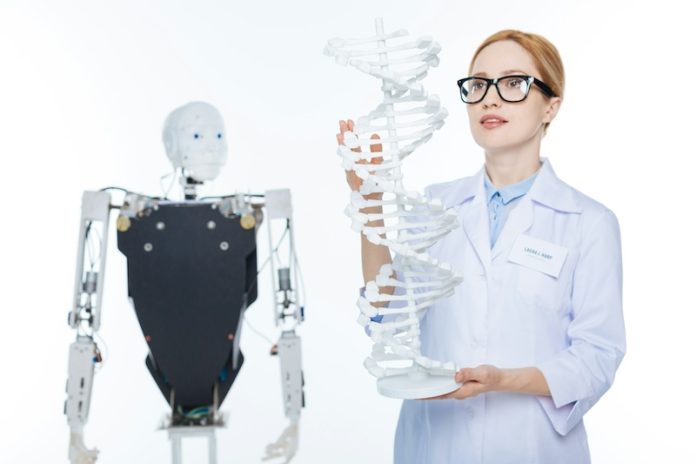
Researchers at the University of California San Diego have developed a new generation of artificial intelligence (AI) tools that can rapidly and inexpensively detect important genomic alterations in tumor biopsy slides.
This AI protocol, named DeepHRD, offers a significant advancement in cancer diagnosis and treatment, particularly for breast and ovarian cancers. Their work, detailed in the Journal of Clinical Oncology, could dramatically shorten the time and reduce the cost associated with traditional genomic testing.
Dr. Ludmil Alexandrov, a professor of bioengineering and cellular and molecular medicine at UC San Diego, explains that DeepHRD is designed to save crucial weeks and thousands of dollars in clinical oncology workflows. This is particularly important for breast and ovarian cancer patients who currently face life-threatening delays waiting for standard genomic tests.
The traditional process of diagnosing and determining the best treatment for cancer involves genomic tests that are both time-consuming and expensive.
This often leads to delays and inaccessibility, especially in resource-limited settings. The new AI tool aims to complement or even replace these genomic tests, providing a faster and more cost-effective solution.
Dr. Erik Bergstrom, lead author of the study and a postdoctoral researcher in Alexandrov’s lab, emphasized the potential of AI in precision oncology. The AI was designed to analyze routine biopsy slides, a process that has been standard since the late 19th century.
By using AI to examine these slides, the team was able to accurately and instantly detect genomic biomarkers of cancer, specifically focusing on a condition called homologous recombination deficiency (HRD). HRD is a key factor in how well patients respond to certain chemotherapies like platinum and PARP inhibitors.
This AI-driven approach significantly reduces the waiting time for patients, allowing oncologists to prescribe treatments immediately after the initial tissue diagnosis. Notably, the AI test has a very low failure rate, in contrast to the 20-30% failure rate of current genomic tests, which often require retesting or even more invasive procedures.
Dr. Scott Lippman, a co-senior author of the study, highlighted the transformative potential of this technology. By eliminating the barriers of time and cost, DeepHRD can ensure immediate and universal access to precision therapy for advanced cancer patients. This is particularly crucial for underserved populations in resource-constrained regions where traditional testing is not available.
The development of DeepHRD involved a collaborative effort across multiple departments at UC San Diego, including the School of Medicine, Jacobs School of Engineering, Institute of Engineering in Medicine, and the Moores Cancer Center.
The team’s motivation stemmed from the promise of precision oncology, which tailors treatment options to individual patients. However, high costs and slow turnaround times have hindered its widespread use.
The AI technology behind DeepHRD is protected by provisional patents and has been licensed to io9, a company involving key researchers from the study. The goal is to bring this AI platform into clinical practice as quickly as possible, making precision therapy a reality for cancer patients by providing them with the precise treatments they need without delays.
In summary, the development of DeepHRD marks a significant step forward in cancer treatment, offering a rapid, cost-effective alternative to traditional genomic testing.
This breakthrough has the potential to improve cancer care, making precision therapy accessible to a broader range of patients and addressing health disparities across different populations.
If you care about cancer, please read studies about vitamin D and bowel cancer, and a cautionary note about peanuts and cancer.
For more health information, please see recent studies about the link between ultra-processed foods and cancer, and everyday foods to ward off pancreatic cancer.
The research findings can be found in the Journal of Clinical Oncology.
Copyright © 2024 Knowridge Science Report. All rights reserved.



